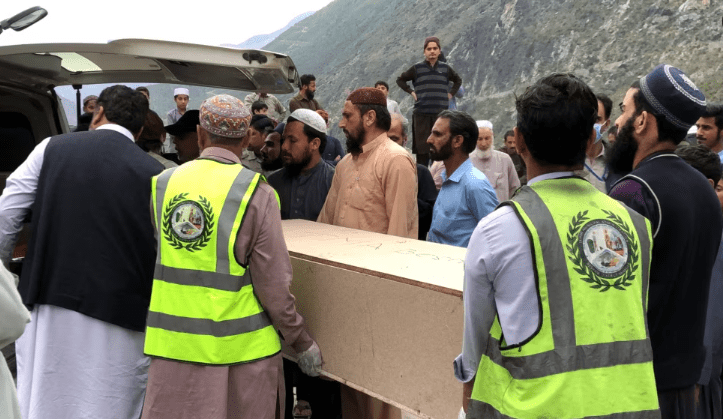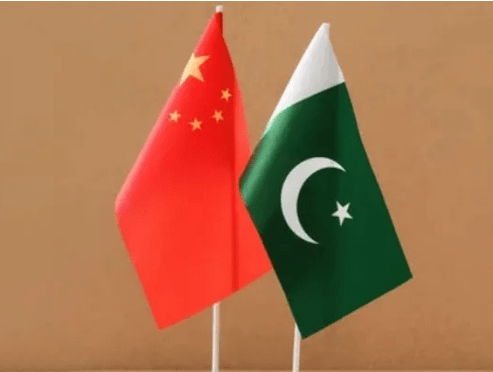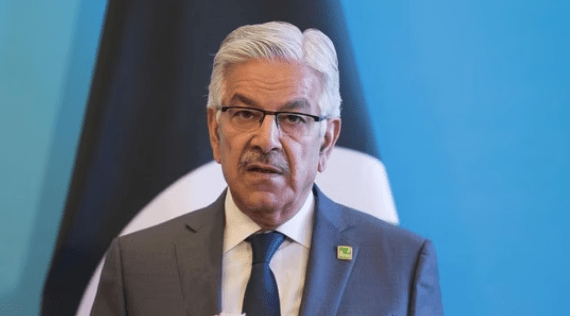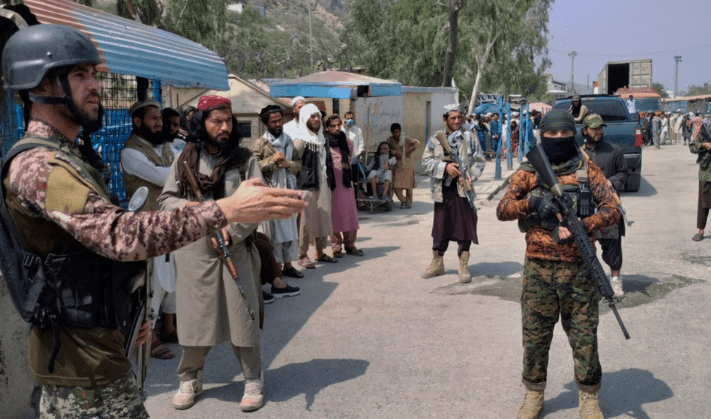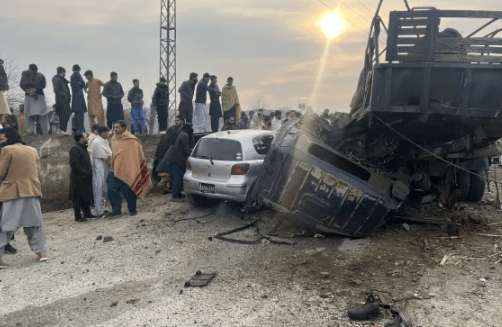Concerns about the Taliban’s anti-terrorism efforts are voiced by Afghanistan’s neighbors, but the Taliban dismisses them.

Afghanistan’s neighbors demonstrated a lack of cohesion and offered a variety of perspectives and strategies at the most recent Shanghai Cooperation Organization (SCO) summit while discussing the threat of terrorism emanating from Afghanistan. Tajikistan has voiced particular worries about “concentrated terror groups in Afghanistan,” whilst China takes a different tack in terms of continuing to deal with the Taliban. Al-Qaida, Hizb ut-Tahrir, the Islamic Movement of Eastern Turkistan, the Islamic Movement of Uzbekistan, Tehreek Taliban Pakistan (TTP), and Jamaat Ansarullah are six terrorist groups that currently have presence in Afghanistan and pose a threat to Afghanistan, its neighboring countries, and member states, according to the envoy from Tajikistan.
The Shanghai Cooperation Organization (SCO) is a military and economic alliance with eight members: China, India, Kazakhstan, Kyrgyzstan, Russia, Pakistan, Tajikistan, and Uzbekistan. Afghanistan has the status as an Observer State. The group’s main priorities include addressing regional security challenges and battling local terrorism, ethnic unrest, and religious extremism. To combat terrorism and prevent violent extremism, the SCO has formed agreements with several United Nations agencies and international organizations, including the UN Center for Preventive Diplomacy for Central Asia.
Since the Taliban took control of the country in 2021, Russia and Tajikistan revealed during the SCO summit, Afghanistan has served as a “breeding ground” for terrorist organizations. Russia initially gave the Taliban control of the Afghan Embassy in Moscow while continuing to have diplomats stationed there. When a suicide bomber murdered two members of the Russian Embassy staff, they closed the diplomatic post in Afghanistan. The Taliban’s ascent to power has reinforced terrorist groups operating in Afghanistan, and these groups are now concentrating there to a degree never previously seen, according to Sergei Shoigu, Russia’s defense minister. Afghanistan was referred to be “an epicenter for the dissemination of terrorism” by a different Russian official. The Central Asian area, which is important to Russia, is threatened by terrorism coming from Afghanistan, which is a source of concern.
China has publicly refrained from criticizing Afghanistan’s security problems in favor of assisting the Taliban in establishing peace and economic development by cooperating with the de facto government in Kabul. Due to weaknesses in the SCO, Member States have had to retain their relationships with the Taliban in order to get private security assurances. According to Jiayi Zhou, a specialist at the Stockholm International Peace Research Institute, “differing threat perceptions of particular extremist or separatist groups, political sensitivities and sovereignty concerns, as well as lack of genuine trust among member states,” have made “concrete counterterrorism cooperation very difficult,” slowing down the immediate response and fight against terrorism in the region.
Taliban officials declare that they do not support terrorist organizations or constitute a danger to other nations, yet their actions belie these claims. The Taliban assigned several of its “most-wanted” members to significant posts in the new cabinet soon after seizing control of the government in Kabul. For instance,
For instance, Qari Baryal, one of Washington’s “most-wanted” Taliban and al-Qaeda leaders in Afghanistan, was appointed by the Taliban to be the governor of the province of Kabul. He is accused of overseeing the production of IEDs (improvised explosive devices), allocating suicide personnel, and planning and carrying out attacks. He is one of the al-Qaeda figures identified as “affiliated” with the Taliban in a UN assessment. A number of al-Qaeda members have been given significant positions inside the Taliban. There are about 400 al-Qaeda units in Afghanistan, and it seems the organization is expanding its activities. According to a recent UN Security Council study, their ties are “strong and symbiotic.”
The U.S. was able to see that the Taliban had breached the terms of the 2020 Doha Agreement by harboring and protecting a prominent al-Qaeda commander, Ayman al-Zawahiri, in Kabul. The Taliban promised to “send a clear message that those who pose a threat to the security of the United States and its allies will have no place in Afghanistan,” according to the Doha Agreement between the U.S. and the Taliban.

